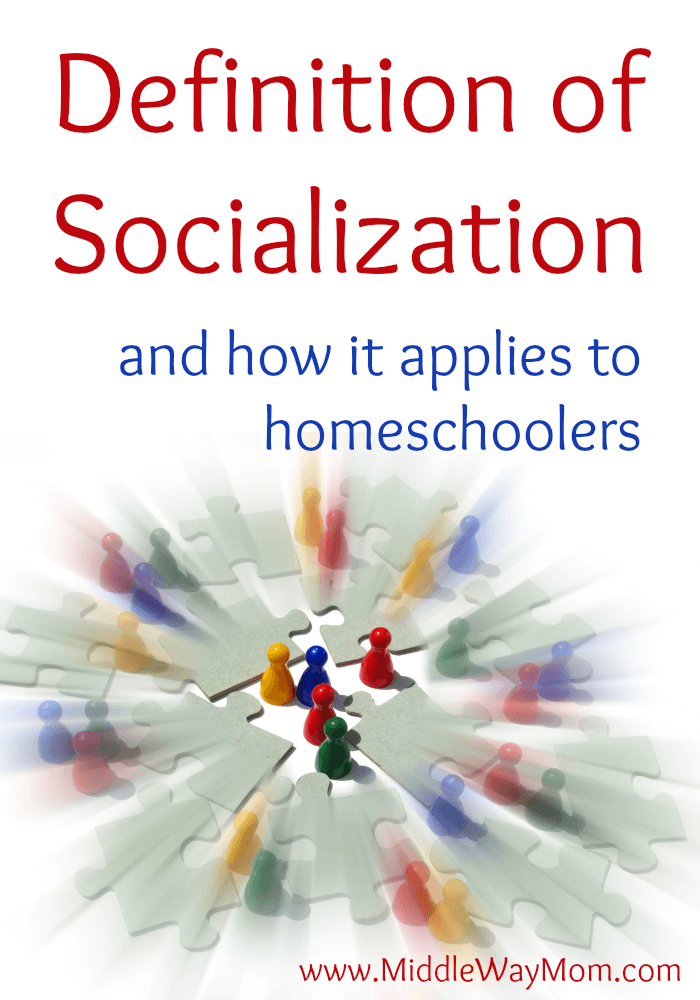“The process by which a human being beginning at infancy acquires the habits, beliefs, and accumulated knowledge of society through education and training for adult status”

I’d say Merriam-Webster has a pretty good definition that everyone can agree upon, and let’s focus for a second on the last part, “for adult status.” Most of us would agree that someone who is considered unsocialized acts in a juvenile manner, not understanding the expectations of behavior from those around them.
What is the socialization process?
Now how we educate and train our younger generation on the expectations of behavior are constantly up for debate. Each generation has slightly different ideas of what is acceptable and what is not. I do believe that the idea that socialization is best learned from a child’s peers is a funny concept when you really break it down to think about it. So, kids are supposed to learn how to behave like adults from fellow children? How does that work exactly? I think everyone would agree that at some point, adults need to be involved in the socialization process, even if only to help them see the bigger picture. Even a teenager, who has many adult capabilities has only an abstract concept of what happens in the course of 10 years, and how their actions can effect the future.
The actual steps of the socialization process are not agreed upon in our time, nor will they likely be agreed upon in the future. Since we can’t count on a step-by-step instruction manual of how socialization works, and how to facilitate it, we must use our best judgement, and instead decide who will be the key players in the socialization goals we have for our children.
Socialization at school
In the typical family, a child goes to school and learns about themselves and the world around them much from their teachers, the school staff, and fellow students. Even if you find a school that is more niche to fit your family’s morals and values, there is likely some disconnect between what you believe, and what is taught in the school. Often we believe this is beneficial for the purpose of our children understanding diversity, and in concept, I would tend to agree with such a goal for my own children as well. Here’s the thing though, how much time are they at school, and how many waking hours are they with you? Are you your child’s main influence? Between extra curricular activities, homework, bathing, and sleeping, how much time do you actually have to impart your family’s beliefs?
Again going back to the idea that we are working toward our children achieving the proper knowledge to achieve adult status, who is the main influence for how they will imagine themselves as an adult?
Is it impossible to impart your beliefs to your children as they are in school? No! Many families do it. Still, I believe whole heartedly that it’s more of an uphill battle. In the effort to respect everyone’s beliefs, the schools are left to only holding up the bare minimum values for the safety of the students. It’s a tough spot for the schools to be in, and because of this uphill battle with socialization at school, among other things, we have chosen to homeschool.
Knowledge of society
Let’s refer back to the socialization definition Merriam-Webster provided in that a socialization goal is that our children will have knowledge of society. As homeschoolers, this is also important! We can learn about other faiths and lifestyles not just from other children, but from all the generations living in our society today. Doesn’t that give a broader, more accurate picture of the various dimensions of society anyway? I encourage families to get their children in sports, or another activity where they see the same group of people each week for an extended period of time. This way we can meet families from all different backgrounds. Parents are normally quite involved in their child’s sports activities, and therefore we can interact with the entire family unit, not just peers. Beyond sports, we can visit places of worship of other faiths, and other facets of our culture where we interact with people different than us. That’s valuable knowledge of society, and I would argue it’s more valuable socialization than what you find in a school setting.




Leave a Reply